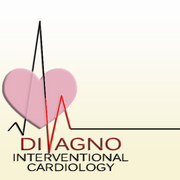
When doctors listen to a patient’s heart with a stethoscope, they’ll anticipate the distinct “lub dub” sound of heart valves opening. But in some cases, healthcare professionals may hear a whooshing noise caused by irregular blood flow within the organ—a condition known as a heart murmur. Estimated to impact about 10% of adults and 45% of children, most cases of this disorder are harmless. But in a few cases, the sound may result from an underlying problem that requires additional cardiac care. If you’re concerned about this common cardiovascular condition, here are a few simple points to know about heart murmurs.
A Guide to Heart Murmurs
Causes
Innocent cases are typically caused by an increased flow of blood to the heart. Some common reasons for these murmurs include increased exercise, pregnancy, anemia, hyperthyroidism, puberty-related growth, or fever.
Abnormal murmurs that appear at birth are often related to heart defects—such as holes that are present in the tissue. Those that appear later in life can be due to a dangerous infection of the heart valves and inner lining, known as endocarditis. Others may suffer from one of many structural diseases—including narrowing of the valve, backward-leaking blood, and unusual aortic dilation.
Symptoms
Apart from the distinctive noise, innocent heart murmurs won’t present any additional signs or symptoms.
 Heart murmurs caused by underlying conditions, however, may cause a variety of concerning symptoms—including respiratory problems, swelling, heavy sweating, chest pain, and dizziness. If these symptoms are present, talk to a doctor as soon as possible. If they worsen or present serious distress, call an ambulance for emergency cardiac care.
Heart murmurs caused by underlying conditions, however, may cause a variety of concerning symptoms—including respiratory problems, swelling, heavy sweating, chest pain, and dizziness. If these symptoms are present, talk to a doctor as soon as possible. If they worsen or present serious distress, call an ambulance for emergency cardiac care.
Treatments
Innocent heart murmurs typically don’t require treatment. They may be observed by a doctor on a routine basis, but often disappear with time.
The best treatment for abnormal cases will depend on the underlying cause. Valves that are severely structurally compromised or disease may need to be surgically replaced with an artificial device. In most instances, however, the problem can be treated with one of many heart medications—such as those that decrease high blood pressure.
Specializing in cardiovascular diseases, the professionals at DiVagno Interventional Cardiology, MD, PA are a leading resource for those diagnosed with a heart murmur. Based in Bergen County, NJ, this team of specialists has the experience and resources necessary to monitor and treat murmurs—as well as the underlying conditions that may cause them. To learn more about their individualized approach to cardiac care and the many conditions that they address, visit them online. For appointments, call (201) 845-3535.
About the Business


